Home » Jazz Articles » From Far and Wide » Back to Brazil: Part Two
Back to Brazil: Part Two
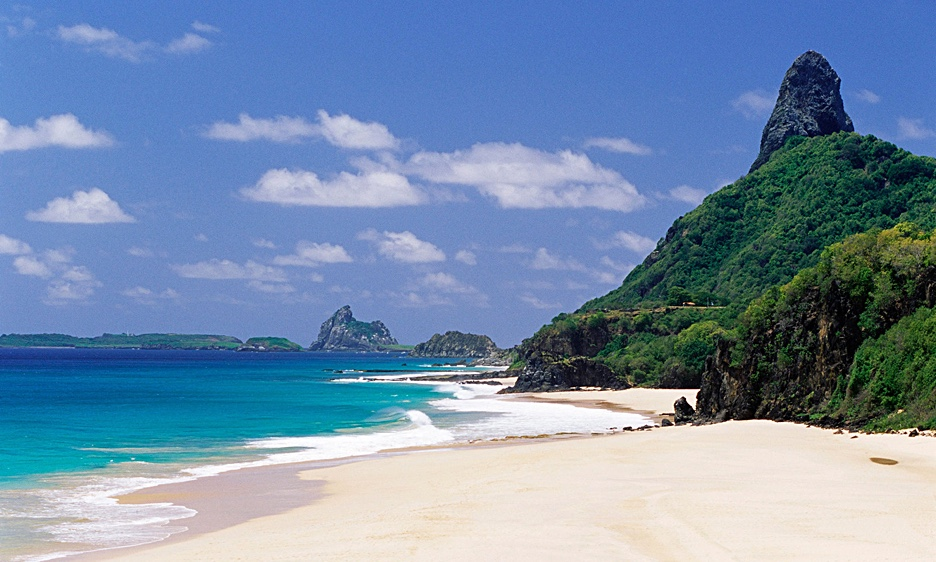
The mixture of Bossa and Bebop created yet another sub-genre of Brazilian music, and today the still virile Samba Jazz movement is enjoying a resurgence.
Part Two of this series on recent Brazilian-influenced releases continues with further discussion of the Samba Jazz genre. The style's heyday, from the early to mid-1960s, produced what Brazilian music critics consider to be landmark recordings. The early champions of the instrumental and more jazz-oriented version of Bossa Nova included such pioneers as pianist Sérgio Mendes and his Bossa Rio Septet; baritone saxophonist Moacir Santos; drummers Dom Um Romão, Milton Banana (born Antônio de Souza), Chico Batera (Francisco José Tavares De Souza) and Edson Machado; pianists Tenório, Jr., Manfredo Fest, Antonio Adolfo, Dom Salvador, César Camargo Mariano, Luiz Carlos Vinhas, Osmar Milito, and Luiz Eça; bassists Luiz Alves, Edson Lobo and Sérgio Barrozo; trombonists Raul De Souza and Edson Maciel; guitarists Roberto Menescal and Durval Ferreira; harmonica player Mauricio Einhorn; and saxophonists J. T. Meirelles, Paulo Moura and Hector Costita, among many others. The mixture of Bossa and Bebop created yet another sub-genre of Brazilian music, and today the still virile Samba Jazz movement is enjoying a resurgence.
 Samba Jazz & Tom Jobim (Sunnyside) is headlined by three Brazilian jazz stars of recent years —drummer Duduka Da Fonseca, vocalist Maucha Adnet, and pianist Helio Alves. The presence of guitarist Romero Lubambo, bassist Hans Glawischnig and saxophonist Billy Drewes adds extra heft to the rhythm section and the ensemble's versatility while the involvement of two notable guests—trumpeters Claudio Roditi and Wynton Marsalis—signals that something truly special is in the works.
Samba Jazz & Tom Jobim (Sunnyside) is headlined by three Brazilian jazz stars of recent years —drummer Duduka Da Fonseca, vocalist Maucha Adnet, and pianist Helio Alves. The presence of guitarist Romero Lubambo, bassist Hans Glawischnig and saxophonist Billy Drewes adds extra heft to the rhythm section and the ensemble's versatility while the involvement of two notable guests—trumpeters Claudio Roditi and Wynton Marsalis—signals that something truly special is in the works. The set opens with a rhythmically vivacious version of trumpeter Roditi's composition "Gemini Man," with Da Fonseca delivering what is all but an A-to-Z lesson in Samba Jazz drumming. He adds further rhythmic details in his own composition, "Alana." Saxophonist Drews is an interesting choice to cover the horn slot. On soprano in particular, he delivers svelte, sinuous lines that complement pianist Alves' rhythmically dense and melodically alluring solos, as on the ballad "Untitled"—a break from the supercharged Samba Jazz mode. Lubambo provides his usual technically stunning guitar work, while singer Maucha Adnet adds her viscerally attractive, emotion-shaded vocals—a study in barely restrained sensuality. She shines on works like Jobim's lilting "A Correnteza" and on his seldom recorded "Você Vai Ver." The inclusion of Jobim's "Polo Pony," a rarity unknown to most Jobim fans, provides a session highlight, as does Wynton Marsalis' solo on one of the Samba Jazz genre's standards, trombonist Raul De Souza's "A Vontade Mesmo."
While the performances on Samba Jazz & Tom Jobim cannot be faulted, the album's thrown together graphics and photos strike a dissonant chord. A recording this importance deserves a visual identity that equals the distinctiveness of the music; sadly, on this session, that was not the case.
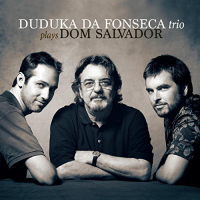 Quite the opposite is the situation on drummer Da Fonseca's trio tribute to a key member of the original Samba Jazz generation, pianist Dom Salvador. The cover photo on Duduka Da Fonseca Trio plays Dom Salvador (Sunnyside) has an Annie Leibovitz quality to it—gloriously monochromatic, straightforward and elegant. What a difference a session makes.
Quite the opposite is the situation on drummer Da Fonseca's trio tribute to a key member of the original Samba Jazz generation, pianist Dom Salvador. The cover photo on Duduka Da Fonseca Trio plays Dom Salvador (Sunnyside) has an Annie Leibovitz quality to it—gloriously monochromatic, straightforward and elegant. What a difference a session makes. The recording is also a winner, showcasing the not-so-well-known repertoire of Salvador, whose trio, along with the Tamba Trio, Sambalanço Trio, Zimbo Trio and many others, was one of the key participants in the 1960s era Samba Jazz movement in Brazil. The opening track, "Farjuto," provides a good stylistic overview of what's to come on 11 performances—a relentless, rustling Samba Jazz pulse driven by drummer Da Fonseca and bassist Guto Wirtti, coupled with virtuosic playing and melodies bursting with dramatic expression and catchy hooks. Pianist David Feldman, a native of Rio de Janeiro, demands attention throughout. His graceful touch on the ballad "Maria" and hard-edged comping on "Transition" will win converts who are not up to date on this young maestro's many talents. Salvador's compositions also impress. "Antes Da Chuva" (After the Rain) is a beguiling beauty that's reminiscent of Vince Guaraldi's early work. Duduka Da Fonseca Trio plays Dom Salvador is a session that lives up to the high standards set by Salvador and other pioneering Brazilian jazz pianists five decades ago.
 Live! Ao Vivo! spotlights the many talents of Quarteto Moderno, a New York City ensemble led by guitarist and composer Richard Boukas. A proud Greek American who became obsessed with Brazilian styles early in his music career, Boukas is a well-known educator and string master. On this 10-track, self-released date, captured live at a New School concert, he surveys folk-rooted idioms from Brazil's Northeast—the same fertile cultural realm that has inspired some of the best work by Edu Lobo, Sivuca and Hermeto Pascoal. Boukas appropriates the rhythmically funky essence of such styles as Forró, Frevo, and Baião and tests their viability in a setting that stresses spontaneous improvisation. Stylistic signatures of the session include Boukas' guitar and vocal unisons and the exemplary playing of the young woodwind phenom Lucas Pino. Bassist Gustavo Amarante and drummer Mauricio Zottarelli, both natives of Brazil who now reside in the U.S. and are highly regarded for their Brazilian music and jazz chops, round out the quartet. There's no sheen of unneeded post-production here —just the sensation of total honesty. The performances are uniformly high spirited and totally captivating.
Live! Ao Vivo! spotlights the many talents of Quarteto Moderno, a New York City ensemble led by guitarist and composer Richard Boukas. A proud Greek American who became obsessed with Brazilian styles early in his music career, Boukas is a well-known educator and string master. On this 10-track, self-released date, captured live at a New School concert, he surveys folk-rooted idioms from Brazil's Northeast—the same fertile cultural realm that has inspired some of the best work by Edu Lobo, Sivuca and Hermeto Pascoal. Boukas appropriates the rhythmically funky essence of such styles as Forró, Frevo, and Baião and tests their viability in a setting that stresses spontaneous improvisation. Stylistic signatures of the session include Boukas' guitar and vocal unisons and the exemplary playing of the young woodwind phenom Lucas Pino. Bassist Gustavo Amarante and drummer Mauricio Zottarelli, both natives of Brazil who now reside in the U.S. and are highly regarded for their Brazilian music and jazz chops, round out the quartet. There's no sheen of unneeded post-production here —just the sensation of total honesty. The performances are uniformly high spirited and totally captivating.  Another release that is saturated with the rhythms of Northeast Brazil is Hermeto: Voice and Wind (Sunnyside), led by vibraphone and marimba artist Erik Charlston and featuring his group Jazz Brasil. Featuring six compositions by Hermeto and two by Egberto Gismonti, the setlist, with the exception of Gismonti's well known "Lôro" and Hermeto's pirouetting "Fatima," avoids the easy choices. Charlston's selection of bandmates also pays dividends. Woodwind ace Ted Nash brought his passion for Brazilian sounds and his arsenal of saxophones, flutes and clarinet to the session, and pianist Mark Soskin has been around Brazilian and Latin fusion scenes since the 1970s and has a natural affinity for such stylistic melding. Brazilian drummer Rogério Boccato is yet another example of the profoundly talented young percussionists from that land who are picking following in the footsteps of such noted musicians as Airto Moreira, Dom Um Romão and Guilherme Franco.
Another release that is saturated with the rhythms of Northeast Brazil is Hermeto: Voice and Wind (Sunnyside), led by vibraphone and marimba artist Erik Charlston and featuring his group Jazz Brasil. Featuring six compositions by Hermeto and two by Egberto Gismonti, the setlist, with the exception of Gismonti's well known "Lôro" and Hermeto's pirouetting "Fatima," avoids the easy choices. Charlston's selection of bandmates also pays dividends. Woodwind ace Ted Nash brought his passion for Brazilian sounds and his arsenal of saxophones, flutes and clarinet to the session, and pianist Mark Soskin has been around Brazilian and Latin fusion scenes since the 1970s and has a natural affinity for such stylistic melding. Brazilian drummer Rogério Boccato is yet another example of the profoundly talented young percussionists from that land who are picking following in the footsteps of such noted musicians as Airto Moreira, Dom Um Romão and Guilherme Franco. Charlston's meticulous arranging concepts avoid straightforward appropriation of the base rhythms initially employed by Pascoal and the other composers represented here. He leaves plenty of open spaces for marimba ostinatos and the reverent tone of Nash's clarinet and flute work. The intertwining of the leader's shimmering vibraphone line and Soskin's relaxed pianistics on the ballad reading of Hermeto's "Os Guizos" (The Jingles) underscore the session's expressive breadth.
Brazil's Biscoito Fino has become the symbol of excellence in that country's recording industry—a label that works studiously to ensure that every release is an undeniable work of art, from the photography and packaging choice of artists and repertoire. A kind of Latin American ECM, Biscoito Fino takes seriously its role in documenting the talents of Brazil's most distinguished instrumentalists. But, is the programming too esoteric for North American audiences? You be the judge.
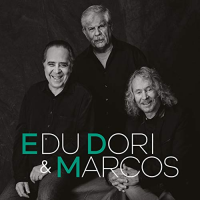 Edu, Dori & Marcos is an example of a successful formula used by the label to spotlight the still vibrant talents of iconic national artists, in this case vocalists and composers Edu Lobo, Dori Caymmi and Marcos Valle. The mood is relaxed as the three stars take turns singing one of the others' compositions. The performances, mostly arranged by pianist Cristovão Bastos and featuring such notable jazz session artists as trumpeter Jessé Sadoc, trombonist Aldivas Ayres, and saxophonists Mauro Senise, Marcelo Martins and Idriss Boudrioua, as well as a sparely used string section, are the definition of unforced sophistication. Highlights include Caymmi's version of Valle's "O Bloco do Eu Sozinho," framed rhythmically by what sounds to these ears as a Marcha; Valle, with strings and horns backing him, crooning Lobo's hit "Canto Triste;" and Lobo's reading of Caymmi's sentimental "Velho Piano" (Old Piano). Lobo's stirring "Corrida de Jangada" (Raft Race), immortalized by the late Elis Regina's 1968 recording and sung here by Valle, is the session's lone up-tempo work.
Edu, Dori & Marcos is an example of a successful formula used by the label to spotlight the still vibrant talents of iconic national artists, in this case vocalists and composers Edu Lobo, Dori Caymmi and Marcos Valle. The mood is relaxed as the three stars take turns singing one of the others' compositions. The performances, mostly arranged by pianist Cristovão Bastos and featuring such notable jazz session artists as trumpeter Jessé Sadoc, trombonist Aldivas Ayres, and saxophonists Mauro Senise, Marcelo Martins and Idriss Boudrioua, as well as a sparely used string section, are the definition of unforced sophistication. Highlights include Caymmi's version of Valle's "O Bloco do Eu Sozinho," framed rhythmically by what sounds to these ears as a Marcha; Valle, with strings and horns backing him, crooning Lobo's hit "Canto Triste;" and Lobo's reading of Caymmi's sentimental "Velho Piano" (Old Piano). Lobo's stirring "Corrida de Jangada" (Raft Race), immortalized by the late Elis Regina's 1968 recording and sung here by Valle, is the session's lone up-tempo work. 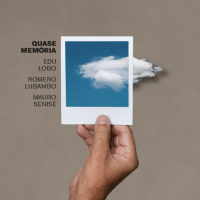 Quase Memória, also on the Biscoito Fino label, features an 11-track program of mostly underexposed works by Edu Lobo. The composer is the date's sole vocalist. Two world class Brazilian jazz artists, woodwind player Mauro Senise and guitarist Romero Lubambo, get deserved equal billing. Such guests as clarinetist Anat Cohen, pianist Cristovão Bastos, and accordionist Kiko Horta are occasionally showcased. Lobo may not be a full-fledged jazz singer, but he is one of his generation's most intriguing vocalists—a master of phrasing with the kind elasticity and subtle inflections in his delivery that reflect strong jazz sensibilities. "Lábia" (Lip), a tune Lobo co-authored with Chico Buarque, is notable for Cohen's showstopping solo.
Quase Memória, also on the Biscoito Fino label, features an 11-track program of mostly underexposed works by Edu Lobo. The composer is the date's sole vocalist. Two world class Brazilian jazz artists, woodwind player Mauro Senise and guitarist Romero Lubambo, get deserved equal billing. Such guests as clarinetist Anat Cohen, pianist Cristovão Bastos, and accordionist Kiko Horta are occasionally showcased. Lobo may not be a full-fledged jazz singer, but he is one of his generation's most intriguing vocalists—a master of phrasing with the kind elasticity and subtle inflections in his delivery that reflect strong jazz sensibilities. "Lábia" (Lip), a tune Lobo co-authored with Chico Buarque, is notable for Cohen's showstopping solo. 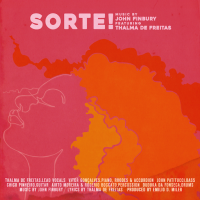 John Finbury is a Yank pianist and songwriter whose compositions sound as if they had been written by one of the great MPB (Popular Brazilian Music) composers. Sorte! (Luck) (Green Flash Music) features the definition of an all-star rhythm section—bassist John Patitucci, guitarist Chico Pinheiro, drummer Duduka Da Fonseca, and percussionist Airto Moreira, among others—with the arresting vocals of Thalma De Freitas. The singer mixes a lowkey approach and soft, pure vocal tones with an occasional surge of emotion. Go no further than the title track, where at times she sounds remarkably like vintage Elis Regina. This is the kind of Indi-label project that can get lost in the barrage of new releases. A strong suggestion: Don't let this one get away.
John Finbury is a Yank pianist and songwriter whose compositions sound as if they had been written by one of the great MPB (Popular Brazilian Music) composers. Sorte! (Luck) (Green Flash Music) features the definition of an all-star rhythm section—bassist John Patitucci, guitarist Chico Pinheiro, drummer Duduka Da Fonseca, and percussionist Airto Moreira, among others—with the arresting vocals of Thalma De Freitas. The singer mixes a lowkey approach and soft, pure vocal tones with an occasional surge of emotion. Go no further than the title track, where at times she sounds remarkably like vintage Elis Regina. This is the kind of Indi-label project that can get lost in the barrage of new releases. A strong suggestion: Don't let this one get away.  Yet another release that benefits from the presence of drummer Duduka Da Fonseca, A Moment of You (Blue Line), by vocalist and composer Daniela Soledade, owes the presence of a stylistically diverse setlist and orchestral variety for its fetching appeal. The date taps an interesting historic reference—a mid-1950s samba composition, "Sonho Desfeito," by the singer's grandfather Paulo and Jobim. Paulo Soledade is featured in a solo guitar turn on "Song for Baden," a tribute to guitarist Baden Powell he co-authored with his granddaughter. On "Veja Bem Meu Bem," a tune by Brazilian rock guitarist Marcelo Camilo, a dreamy reading with the addition of vibes and a solo by cellist Yves Dharamraj make it a standout track. And there are many. Marcos Valle's "Safely in Your Arms" and George Gershwin's "The Man I Love" are also on the hit list. At times, the singer sounds unerringly like Stacey Kent—a reference that is cemented by tenor saxophonist Jeff Rupert's Getz-like solos. That's a flattering comparison that will escape some and doesn't detract from the session's overriding level of exquisite and heartfelt performances.
Yet another release that benefits from the presence of drummer Duduka Da Fonseca, A Moment of You (Blue Line), by vocalist and composer Daniela Soledade, owes the presence of a stylistically diverse setlist and orchestral variety for its fetching appeal. The date taps an interesting historic reference—a mid-1950s samba composition, "Sonho Desfeito," by the singer's grandfather Paulo and Jobim. Paulo Soledade is featured in a solo guitar turn on "Song for Baden," a tribute to guitarist Baden Powell he co-authored with his granddaughter. On "Veja Bem Meu Bem," a tune by Brazilian rock guitarist Marcelo Camilo, a dreamy reading with the addition of vibes and a solo by cellist Yves Dharamraj make it a standout track. And there are many. Marcos Valle's "Safely in Your Arms" and George Gershwin's "The Man I Love" are also on the hit list. At times, the singer sounds unerringly like Stacey Kent—a reference that is cemented by tenor saxophonist Jeff Rupert's Getz-like solos. That's a flattering comparison that will escape some and doesn't detract from the session's overriding level of exquisite and heartfelt performances. In the concluding Part Three of this survey, we will consider the merits of new recordings by Eliane Elias, Benji and Rita, Marcos Silva, Ricardo Peixoto, Luciano Franco, Dalwton Moura, Claudia Villela, and Sofia Ribeiro.
Tags
PREVIOUS / NEXT
Support All About Jazz
 All About Jazz has been a pillar of jazz since 1995, championing it as an art form and, more importantly, supporting the musicians who make it. Our enduring commitment has made "AAJ" one of the most culturally important websites of its kind, read by hundreds of thousands of fans, musicians and industry figures every month.
All About Jazz has been a pillar of jazz since 1995, championing it as an art form and, more importantly, supporting the musicians who make it. Our enduring commitment has made "AAJ" one of the most culturally important websites of its kind, read by hundreds of thousands of fans, musicians and industry figures every month.
























